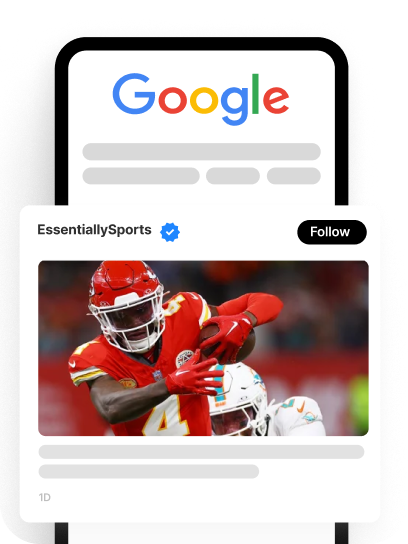
Imago
Credits: Instagram

Imago
Credits: Instagram
Athletes, both able-bodied and para-athletes, show immense strength and determination to compete at the highest level. Para-athletes, in particular, deserve respect: despite facing disabilities, they don’t blame anyone, instead taking control of their journey and excelling in their sport. While fans cheer them on, the reality off the field is far harsher. Support often fails to reach them where it matters most. Former para-athlete and world champion Stef Reid has now stepped forward to address this gap.
Watch What’s Trending Now!
Proposing solutions to ease the financial burden on para-athletes. This certainly helps athletes who need one pair of shoes instead of two pairs, to be precise. How, you ask? The former athlete urges major brands like Nike, Adidas, and Puma to sell single shoes instead of pairs.
Think about it, a professional pair costs around $200. Reasonable for able-bodied athletes, sure, but for para-athletes who only need one shoe? Half that money goes to waste. Reid aims to revolutionize this.“I loved the bladed mannequins, and I wish 15-year-old Stef had seen those. But now I want retailers to match their inclusive imagery with the actual buying experience,” said the athlete in her conversation with the BBC.
Heartbroken but undeterred, Reid redirected her determination to athletics, becoming a world-class Paralympic long jumper and sprinter for Canada and Great Britain. Yet, her life went haywire after a horrific boat accident, which caused severe propeller injuries, forcing the amputation of her right foot. Though retired from competition, the former champion hasn’t left the world of sports; she now models and acts for major brands while using her platform to advocate for para-athletes, highlighting struggles like buying shoes when they only need one.
Countless individuals with mismatched feet remain unfairly burdened with the cost of buying two identical shoes rather than just one. This practice forces them to spend extra money on footwear they don’t fully require. To address this, Nike introduced a single-shoe programme last year, allowing customers to purchase a single shoe for half the price at select stores. But here’s the catch: they barely initiate the advertisement, require going through customer care, and aren’t even available online.
View this post on Instagram
When Reid herself tried to purchase only one shoe from the dedicated stores, she was not pointed to the scheme but instead offered a one-time 15% discount. “That’s not much use in the long term, as I’m always going to have one foot”. Well, Nike has at least started this initiative; Adidas, on the other hand, has yet to implement something like this. However, they stated it is possible to purchase a single shoe at select stores, depending on availability. The company also added that it is in the ‘advanced stages’ of finalizing a comprehensive policy.
Puma and Decathlon also don’t sell single shoes, either in stores or online. Meanwhile, brands like Nike and Adidas are at least taking the initiative to bring change, both in the sport and in the lives of people with disabilities. Well, big brands might not have taken huge initiatives for change, but the smaller ones did.
Smaller brands heard Stef Reid’s call for single shoes
Big brands might move slowly with their initiatives, but that’s not the case for the smaller brands trying to make an impact. High street retailer Schuh offers single shoes at half the price of a pair, while Office lets customers buy odd-sized pairs through its outlet site. If we are going to talk about more personal-level engagement, then Jo’s Odd Shoes provides a lifeline for amputees through his creations as well.
Zappos also stepped in with its Adaptive brand. Back in 2020, the footwear brand launched a pilot program that lets customers buy single shoes or mixed-size pairs, perfect for those who don’t need two identical shoes. The initiative offers a variety of widths and styles, priced from $17.50 to $85. Brands are increasingly focusing on these aspects, making proper shoes accessible to everyone and boosting their profits in the process.
Companies gain both recognition and profits from these programs, which is already a win for them. The question now is: When will the big brands jump on the bandwagon? Only time will tell.
